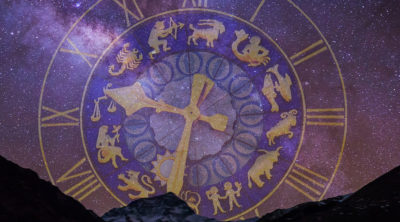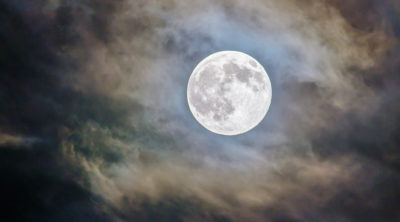
Astrologers and believers may shout at the top of their voices calling astrology a science, but skeptics think otherwise, and they have plenty of reasons to do so. That this so-called science is doing more harm than good to the beautiful world of planets, stars, and other celestial bodies out there, is good enough reason to put it under the scanner.
He who does not allow his miracles to be investigated is a crook, he who does not have the courage to investigate a miracle is gullible, and he who is prepared to believe without verification is a fool. – Dr. Abraham T. Kovoor
Of the many presidential controversies flooding cyberspace, one in particular grabs the attention of believers and skeptics alike – the controversy surrounding President Ronald Reagan and his belief in astrology. It is said that the First Lady Nancy Reagan’s astrologer, Joan Quigley, had a strong influence on President Reagan’s decisions for the 7 years that he was at the helm of affairs.
Right from laymen to the US presidents, astrology boasts of a fan following that can give Hollywood a run for its money. What is it that makes astrology so popular, you ask? It’s our urge of wanting to know what’s in store for us in the future. That means, astrology gives us a sneak peek into our future? No! It doesn’t do that, but it does have a feel-good effect about it, which makes us want to believe that it does. Then why do they say astrology is a legitimate science? Simply because that’s the only way ‘they’ can sell their ‘trade’.
Astrologers have long been using words like planets, stars, moons, constellations, etc., and resorting to seemingly complex mathematical calculations to make their trade seem science-like. At first, it appears as if they have been more than successful in doing so, but a critical evaluation of astrology puts forth a totally different picture, and you end up realizing that far from science, astrology is actually a… (err… we’ll get back to it later.)
Is Astrology a Legitimate Science?
With so many different systems out there, it is a bit difficult to define ‘astrology’. The good part, however, is that all of them more or less talk about the same thing – the influence of celestial bodies on our lives. So, loosely, astrology can be defined as a form of divination which goes by the belief that life on Earth is guided by celestial alignments. In other words, the alignment of stars and planets at the time of your birth decides your nature and future.
Astrology has been subjected to numerous scientific tests time and again, and every single time, the results have been disastrous. Had it been a science, astrology would have easily passed these tests, but the fact that it hasn’t, definitely has something to say. If we produce 12 individuals born under different zodiac signs in front of an astrologer, and ask him to identify their zodiac signs on the basis of their characteristic traits, would he be able to do that? If astrology is really scientific, he should be able to pull off this task with immense ease. He won’t, or rather can’t, and that’s only because astrology is a superstition, which was developed on a fragile base when astronomy and astrology were considered one and the same.
Modern astrology was developed around 2,000 years ago, when human knowledge of the Universe was limited. Back then, it was believed that the Earth was the center and everything moved around it. Other than the Sun and Moon, the existence of only a few planets which were already discovered by then was taken into consideration, when this supposed science was developed. Over the course of time, many new planets, stars, and galaxies were discovered. We realized that our solar system is a tiny part of the Universe, our Sun is just one of the millions of stars out there, and there are many more planets than what we thought. Surprisingly, all these findings were never incorporated into astrology, and even today, astrologers go by the beliefs that were held around 2,000 years ago.
The only development that we have seen in astrology is the addition of Ophiuchus as the 13th zodiac sign (that’s if at all it can be called a development, because most of the astrologers do not acknowledge the new sun sign.) That the astrologers prefer to keep this constellation out of their realms isn’t really surprising, because if they acknowledge it, then all their previous predictions will be questioned. From the astrologers’ point of view, this is a classic case of ‘Damned if You Do, Doomed if You Don’t’. Any new finding in the field of science is published and subjected to peer review by a community of researchers. When it comes to astrology though, new findings are either refuted, or not acknowledged in the first place.
The Constellations Fiasco
If you have been following the horoscope for Capricorn because you were born somewhere between 22nd December and 21st January, then you’ll be disappointed to hear that you have been banking on the wrong zodiac sign all this while. It’s surprising that astrologers have failed to update the basic premise on which the so-called science stands – the constellations. Basically, the Sun appears to move along the ecliptic across the 12 zodiac constellations in the ecliptic path. In course of this, it spends roughly around a month in each constellation. So the constellation in which the Sun rises at the time of your birth automatically becomes your zodiac sign. This seems sound theoretically, but there is a slight problem.
The zodiac sign assigned to a particular month is not based on the constellation in which the Sun rises today, but instead, is based on the constellation in which the Sun used to rise in ancient times, when astrology was in its developmental phase. Axial precision, i.e. the gradual shift in the orientation of the Earth’s axis, has brought about a drastic change in the celestial alignment, which, in turn, has shuffled the zodiac date ranges. Going by the current alignment, you are a Sagittarius if you were born in the first fortnight of January, not a Capricorn.
The Sun, whilst cruising along the ecliptic, spends a lot more time in the Ophiuchus constellation than it does in the Scorpius constellation. Even more surprising is the fact that the Ophiuchus has been in the picture for thousands of years, and yet, has been ignored by astrologers. Back then, the Babylonians decided to ignore Ophiuchus as they wanted an even number of zodiac signs. Today, however, astrologers are forced to ignore this constellation for some obvious reasons we spoke of above.
It’s not like adding Ophiuchus will put astrology on the right path, but by not acknowledging its existence, astrologers are definitely doing injustice to the beautiful world out there.
The ‘Unknown’ Force
What is it about the ‘chosen few’ celestial bodies which make their influence on our lives so strong? Some say gravity is the factor, which could have well been the correct answer, had the Relative Planetary Gravity of the Moon (7.7) not been greater than that of Jupiter (5.8). Astrologers argue that the distance doesn’t matter, and the influence of Jupiter on our lives is stronger than that of the Moon. If distance is really not an issue, like they say, then shouldn’t all the planets in the Universe be considered, or at least the ones that we have discovered, thanks to our powerful space observatories? An easier way out is to say it’s an unknown force that cannot be explained, and that’s exactly what most astrologers do.
Those Non-existent Planets
Of the Navagrahas, which are considered the major influencers in Hindu astrology, only five, i.e. the Mangala (Mars), Budha (Mercury), Brihaspati(Jupiter), Shukra (Venus), and Shani (Saturn), are associated with true planets. Other than these, there are the Surya (Sun) and Chandra (Moon), which can still be given the benefit of doubt as they are celestial bodies, and Rahu and Ketu, which don’t even exist. Basically, Rahu and Ketu are the orbital nodes of the Moon. Uranus and Neptune, and Pluto – considered a planet until recently, don’t find a place in the elite list of influencers in astrology. That perhaps has something to do with the fact that they were not discovered when astrology made its debut. In antiquity, all the non-fixed objects that were seen in the sky were considered planets, including the Sun and the Moon, and traces of this are seen in the concept of Navagrahas.
Biting Off More than it Can Chew
Yet another problem with the zodiac is the fact that it tries to accumulate too much into one. If the population of the world is 7 billion, then each zodiac sign should have roughly around 580 million people, and these 580 million people should more or less have a similar day. Leave alone a similar day, these people won’t even have the same nature. Think about it, if leadership is a quality which is associated with certain zodiac signs, wouldn’t all the leaders have one of ‘these’ zodiac signs? And if astrology helps you identify leaders, why do we even need leadership development programs?
Why Do People Believe in Astrology?
Many people say they believe in astrology as it works and they have themselves experienced it. But does it ‘actually’ work? Your daily horoscope says you will have some money coming your way today, and you find a quarter in the pocket of your old jeans. How accurate would you consider a prediction like this one. Logically speaking, the vaguer a comment, more are the chances that it will turn out to be true. It’s highly unlikely that an astrologer will tell you that you will find a $100 bill in your old jeans, and you will actually find one. Furthermore, it’s also worth noting that we are more likely to remember those astrological predictions that we think came true, like ‘money coming your way’, and ignore the ones that didn’t.

Then there are people who swear by the fact that a person’s nature can be determined by the time and date of his birth. They argue that they know people who display the traits that are associated with their respective zodiac signs, and even go to the extent of asserting that their own traits make it more than evident. This, once again, is the case of concentrating on things that you can relate to, and ignoring the ones that you don’t. It’s something similar to our tendency of ignoring all the good things that someone does, but remembering the one bad thing done by him.
The Forer Effect
As for readily associating with ones own zodiac traits, it has more to do with the Forer effect, which says that astrological readings are so vague that they can apply to everybody. If you haven’t previously read about your ‘own’ zodiac sign, any reading that you come across will come across as a perfect reading, as you will instinctively relate to things that you believe have been written about you. If you have been following ‘your’ zodiac sign closely for a long time, then you will argue that the reading is far from perfect, not because it’s actually far from perfect, but because you have hard-wired your brain to believe that you belong to a certain zodiac sign, and therefore, should only demonstrate the traits of that particular sign.
The daily horoscope column in the newspaper is quite popular among masses. While the person in charge of this column at the newspaper office would laugh it off saying, who believes in such stuff anyway, it’s worth noting that millions of people plan their day after reading these columns. It doesn’t just stop there though. People choose their life partners, and companies hire people after taking into consideration zodiac signs. If it’s immoral to judge someone on the basis of their caste, creed, or ethnicity, how does it make sense to judge someone on the basis of their sun sign?
Interestingly, there is no consensus among astrologers themselves. Each astrologer asserts that he is the best in the business, and has an equally loyal fan following vouching for him. A person who believes in Hindu astrology (jyotisha), which is quite popular in India, will dismiss the daily horoscope column in the newspapers as a joke, and yet fail to answer convincingly as to why the system that he follows should be taken seriously.
As you evaluate each attribute of astrology, you will realize that far from science, astrology is actually a pseudoscience. Without any practical or scientific evidence, it can only be considered a source of entertainment… nothing more. Earlier, people looked at the sky as the heavens – the abode of god – which was connected to the life on the planet in some mysterious way. Today, however, we can confidently say that we know a considerable bit of what’s happening out there. The sad part is that, even after knowing this, we fail to see through the fraud that astrology is.






